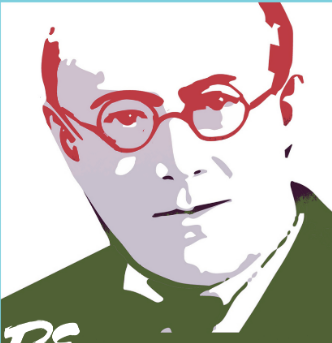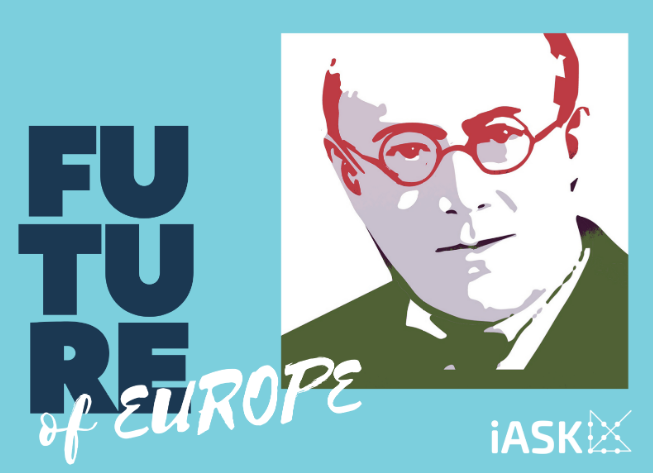Research & Studies


Chris Hann, Director of the Max Plank Institute of Social Anthropology in Halle, Germany,
has been a student of Hungary for nearly five decades. In the process, the Welshman learned Hungarian and has been following developments through repeated visits to an area in the interfluvial area of the Danube and the river Tisza. He authored books and a number of articles on his findings.
In an online lecture in the series ’The Future of Europe in a Global Context’ on November 17, 2020, he revisited his learnings once again, this time examining them by applying the principles of Karl Polányi, and concluding that the promise of a market society proved to be a utopia for Hungary after 1990.
Karl Polányi was an economic historian and a social philosopher for two-thirds of the 20th century. He lived most of his life in exile in Austria, England and finally in Canada. In his view – contrary to mainstream economics – the emergence of market-based societies in modern Europe were (and are) not inevitable, but historically contingent and are deeply embedded in society and culture.
Polányi speaks of four types of integration in society:
In Polányi’s view, society possesses a deeply grounded self-protection system,– which he terms a countermovement – as a reaction to the dominant principle of market exchange. Countermovement is a societal reaction that manifests itself when the market disembeds itself from society and culture. When the enhanced power of the market activates the countermovement the result is a ’double movement’, whose outcome could be quite complex: it could be benign (bring about reforms, unemployment insurance, the establishment of trade unions, etc.) or malign (such as the laissez-faire approach to the economy that in his views led to two world wars.
When Professor Hann started his anthropological fieldwork in the area of Tázlár and Kiskunhalas in the mid-70s and the 80s, Hungary was – he says – in an era of embedded socialism, characterized by a balance of all four Polányi principles: reciprocity was evident in mutual assistance in building houses, big weddings, joint pig-killings, etc; redistribution in the state subsidies for the collective form to compensate for unfavorable ecological conditions, market exchange in the government’s flexibility to set prices for the commodities produced; householding within the form of collective farming: families worked on the lands they used to own in pre-socialist times, and even state-owned farms provided employees with small plots to produce commodities for themselves or for sale.
All in all, the rapidly modernizing agriculture of the peasant household was the key reason for the relative success of Hungarian agriculture in the final decades of socialism. The success of this period may also be seen as a gentle countermovement to the previous extreme version of the Stalinist system of redistribution.
The first post-socialist decade (1990-2000) could be crudely labeled, according to Prof. Hann, as ’neoliberal disembedding’. At the time the common assumption was that in place of the socialist simulated market the need was for the real thing: only the combination of private property rights and a genuinely free market would ease the economic tensions. The socialist party wholeheartedly supported this approach, while trying to maintain as much of the welfare state elements as possible. This contradiction and the global financial crisis led to the election victory of FIDESZ-KDNP coalition in 2010.
During the period from 1990 till 2010, the four Polányi integrative types broke apart. Reciprocity and householding disappeared: nobody was building houses or held big weddings. Unemployment grew, many young men began to look at employment possibilities in Western countries. In redistribution, while welfare persisted, many key areas experienced structural changes (e.g. education was shifted from the state to the churches, the local hospital was privatized, full employment became a thing of the past, etc.) The social world fell apart: private property and the self-regulating market were the dominant principles. The message was increasingly nationalistic and xenophobic. And as there was no countermovement from the left, society begun to gravitate to the right – the party Jobbik was popular in the region.
The decade that began in 2010 brought a re-embedding. There was no significant change in reciprocity and householding. There was, however, in redistribution: social security transfers diminished dramatically, local governments had less and fewer resources at their disposal, as most everything became centralized. On the other hand, the work-fare system was expanded and is praised, for it offers social security coverage and pension rights. In the market, local entrepreneurs soon learned that above a certain level there is no point in tendering for projects unless they are members of a ’magic circle’.
Today, there are many tensions and resentments regarding the market principle, but compared to 10 years ago, the governing parties led a successful countermovement and accomplished a significant re-embedding of the local economy in the region where Professor Hann continues to conduct his research.
© 2017-2023, All Rights Reserved